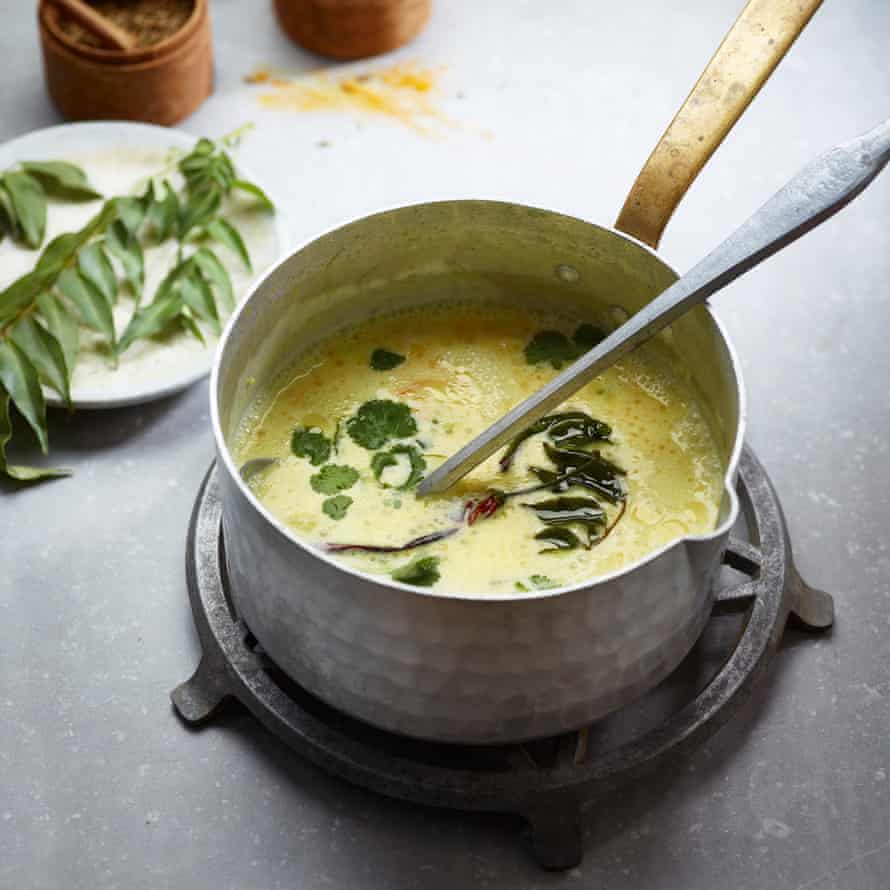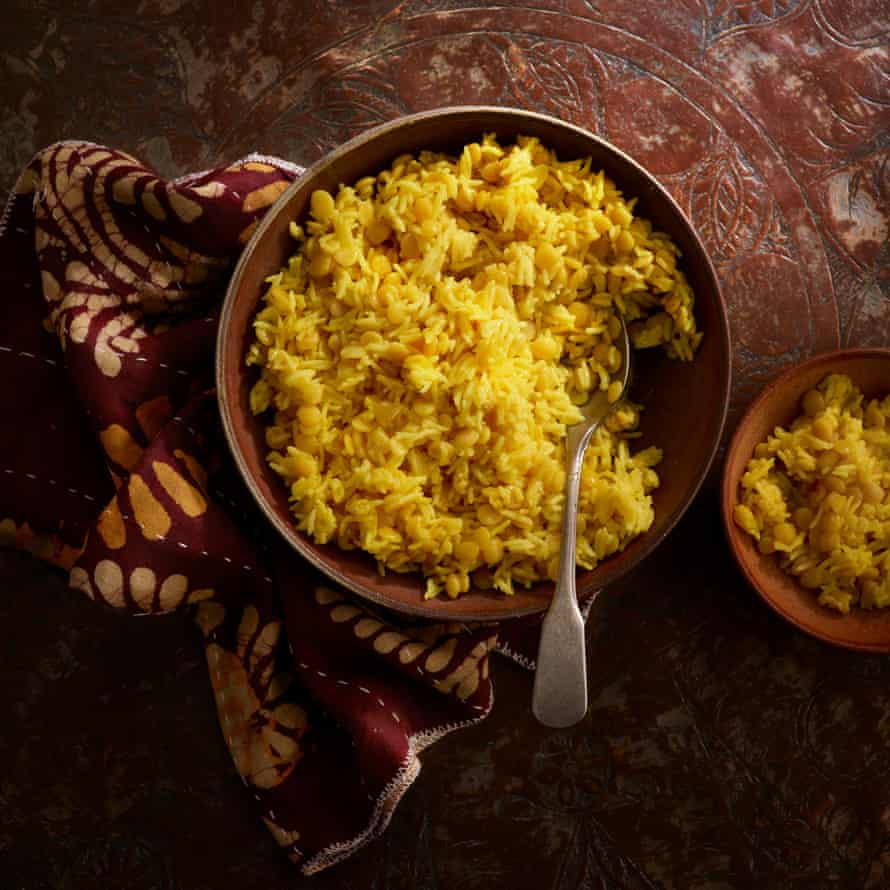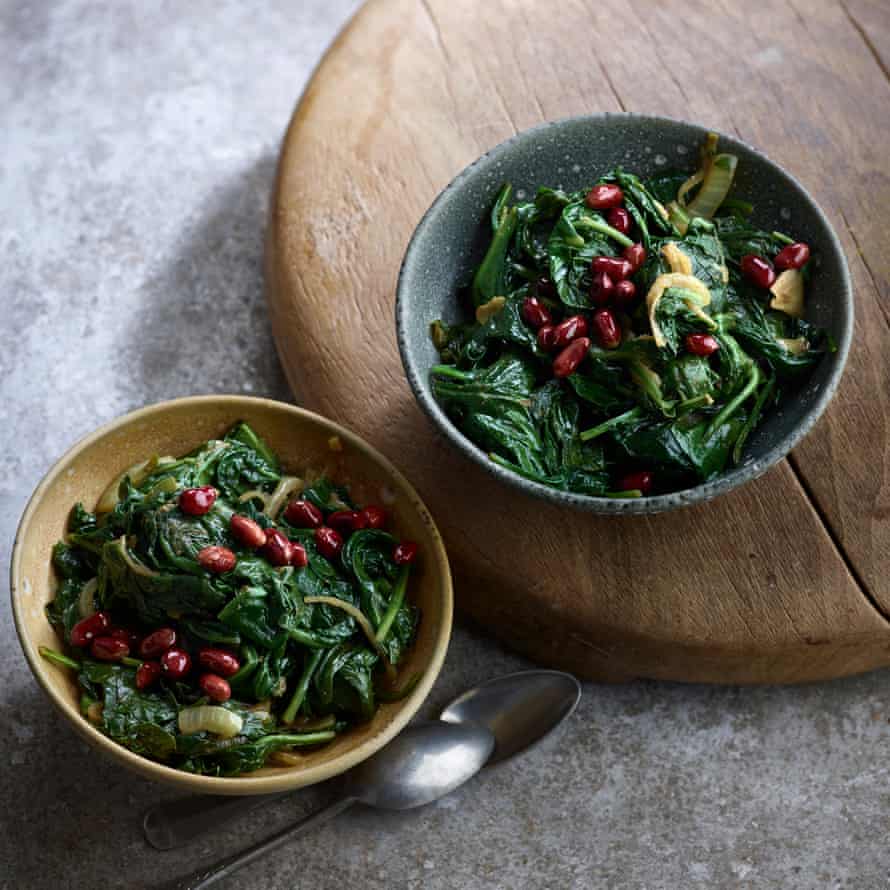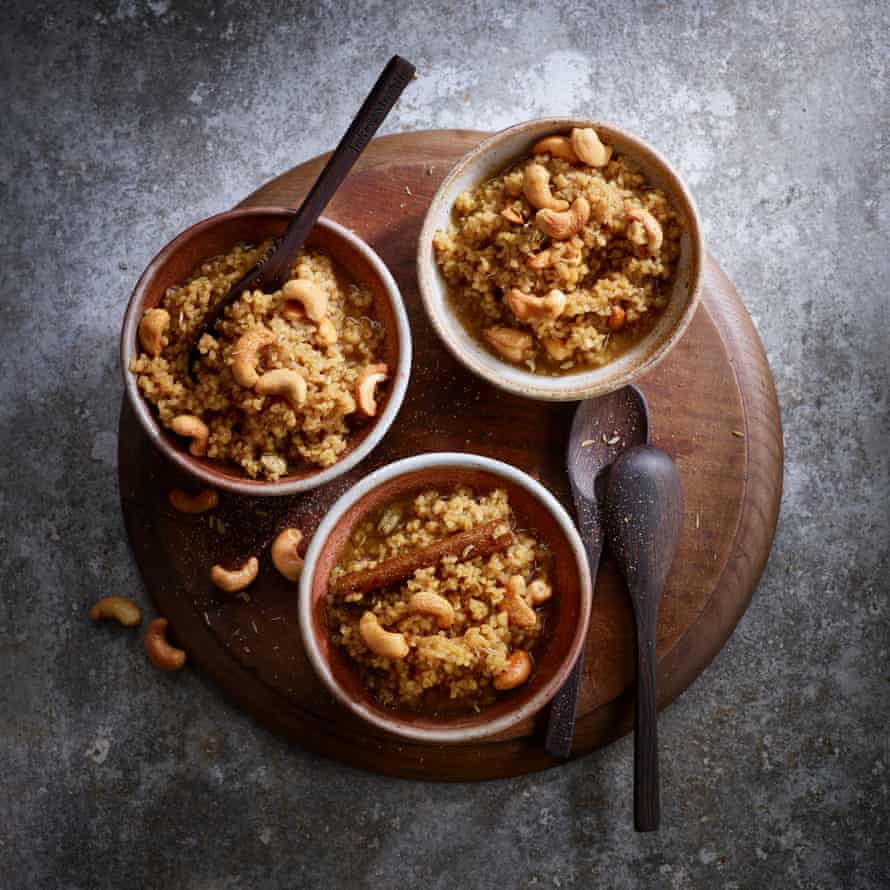150 Homemade Vegetarian Recipes - RaillyNews |
- 150 Homemade Vegetarian Recipes - RaillyNews
- Young Louisiana Cook's Vegan Recipes Attract a Following - U.S. News & World Report
- Spicy yoghurt soup, comforting rice and dal – Gujarati vegetarian recipes to cook every day - The Guardian
|
150 Homemade Vegetarian Recipes - RaillyNews Posted: 30 Jan 2021 01:48 AM PST 
Although it is said that vegetarianism or veganism is a new trend from time to time, the truth is not. The idea of not eating meat is by no means new. People have been practicing this since ancient times. Two famous historical Greek philosophers, Plato and Pyhagoras, rejected meat. Some people also choose to live without meat for conscientious, religious or health reasons. Health-conscious people know very well that a vegetarian diet keeps body weight under control. It significantly reduces the risk of heart, cancer and other diseases. Unfortunately, vegetarian food is not easily available everywhere. Martı Publishing has created an important work that will fill the gap in this field. More than 150 vegetarian recipes Homemade Vegetarian Recipes book It has already taken its place in the kitchen of many people's homes. ALL MEALS TESTED 3 TIMESAs each recipe in this book, which will be an indispensable guide to your kitchen, is photographed step by step with its beautiful presentations, the techniques used are shown gradually. Vegetarian recipes, each prepared three times in the trial kitchens, are explained in a very short and clear way. With a wide variety of cooking and eating suggestions Homemade Vegetarian RecipesThere are recipes not only for vegetarians and vegans, but also for everyone who loves to eat and prepare healthy food. |
|
Young Louisiana Cook's Vegan Recipes Attract a Following - U.S. News & World Report Posted: 29 Jan 2021 04:00 PM PST [unable to retrieve full-text content]Young Louisiana Cook's Vegan Recipes Attract a Following U.S. News & World Report
|
|
Posted: 17 Jan 2021 12:00 AM PST My mother and I started Gujarati Rasoi on a market stall in Hackney, east London, in 2005. By 2012 we had a second stall in Borough Market. When Covid-19 happened we moved online. What is constant during this is our food. The recipes have been with my family across generations and continents, and remain unchanged. They are a culinary sutra, a link to our past.  My family is from a very rural region of Gujarat in India, a tiny village a two-hour rickshaw ride from the city of Surat, thus the food, known as Surati, has another tier of regionality to it. The vegan and vegetarian recipes here are a part of that heritage: we make these "everyday" recipes at least once a week. The spinach flavour is intensified by reduction and cooked with tempered spices and onion, the peanuts adding bite. The cumin complements the okra and the sour and spicy yoghurt soup. Gujaratis rarely have a meal without something sweet so I've included a recipe for lapsi, made with toasted broken wheat, fennel and cardamom. If the meal is made in its entirety (choosing either the palak or the binda) it will feed four. BindaOkra (binda) is a very easy recipe, a good start if you are new to making Indian food. Start with selecting the freshest okra – the way to do this is to bend one at the pointed end, if it snaps off, it's fresh. Serves 4 with the other dishes To clean the okra, rinse in warm water and leave to drain. You may want to do this next part in fours, cleaning each okra individually will otherwise take a long time. Lay the okra four at a time on a clean tea towel, then wipe them with a paper towel from top to end, turning them a quarter turn each time until all sides are cleaned. Repeat with all the okra. Again four at a time, line them up on a chopping board, cut off the tops and slice them into 2cm pieces and set aside. Put the oil in a wide frying pan and place over a medium heat. If you use a small pan the okra will not dry as it cooks, this will make it sticky and it will break. Test the oil by dropping a cumin seed into it, if it fizzes almost straight away it's hot enough. Add the cumin and allow it to sizzle for 4-5 seconds. Now add the okra and reduce to a low heat. Gently move the okra in the pan so it has a coating of oil and spread it out in the pan. Allow it to cook until it becomes almost tender. Move the okra so it cooks evenly while being careful not to break them. When the okra is almost tender, add the rest of the ingredients except the coriander and lemon juice, and cook for 5 minutes. Add the coriander and lemon juice. Remove from the heat and serve. Khaddi Khaddi is a delicious warming spicy, tangy, soup. Ideal for a cold blustery day. I like to leave the yoghurt standing for a couple of hours at room temperature to intensify its sour flavour – this improves the finished taste. Originally this would have been made with the buttermilk left over from making paneer. Serves 2 Add the yoghurt slowly to the gram flour, whisking gently until all the lumps are gone. Add to this the powdered or fresh turmeric and mix in completely. Now slowly mix in 330ml of water and set aside. Put a pan over a low heat, add the ghee or sunflower oil and the dried red chilli. Add one or two cumin seeds, if the ghee is hot enough the seeds will sizzle. If not, wait and try again. Once hot enough add the cumin, cloves and curry leaves. Keep a lid hovering over the pan as the cloves may pop out. Allow the spices to infuse the oil or ghee for around 15 seconds. Now add the yoghurt and water mixture so that the spices do not burn. Add the sugar, ginger and half the green chilli. Add almost all the salt, reserving a pinch of it. Keep stirring with a whisk and bring to a simmer, but do not allow it to come to a boil or it will cause the khaddi to curdle; it will thicken slightly. At this point adjust the consistency by adding more water if you prefer a thinner khaddi. Allow 4-5 minutes for the flavours to infuse, then taste. The khaddi should have a full tangy flavour, with cumin and ginger and lastly chilli in the background. If you like a little more heat add the rest of the chilli. Then wait for the flavours to infuse, taste again and add the rest of the salt to your taste. Just before serving, add a sprinkle of chopped coriander. Kitchdi Serves 4 with the other dishes To serve Rinse the rice twice, drain and set aside. Rinse the toor dal twice and drain. Pour 400ml of the fresh water into a pan with the salt and add the dal. Bring to a boil, then reduce to a simmer with a lid partially on for 20 minutes. Add the rice, ginger, garlic and turmeric to the partially cooked pigeon peas and bring to a boil, then reduce the heat and simmer with the lid on for a further 20 minutes. Check at 5-minute intervals to make sure the rice is not catching, and add the rest of the water if needed. Rest the rice for 5-10 minutes with the lid on before serving. Serve with a little ghee or butter if you wish. Palak You can use broadleaf spinach or baby spinach here. Be sure to rinse it at least twice. If using broadleaf spinach, chop off the root, leaving as much of the stems as possible, then slice it into it at 4cm intervals, and set aside to drain in a colander. Serves 4 with the other dishes Place the ginger, chilli, ground coriander, ground cumin and turmeric in a bowl. Place a saucepan large enough to hold half the spinach in it on a low heat. Add the oil. Remove the skin from 3 or 4 of the peanuts, then put all the peanuts into the pan. They will slowly begin to crackle. Keep moving them so they fry evenly. Once the skinned peanuts are golden remove them all from the pan, leaving as much of the oil as possible. As the peanuts cool down, they will lose any moisture still in them and become crunchy. Now temper the cumin. Place the pan back on the heat and add a cumin seed – if it sizzles on contact then the oil is hot enough, so add the rest of the cumin. The cumin should fizz and begin to brown and release its flavour into the oil. Do not let it brown too much – if it is, remove the pan from the heat and go to the next step. Add the onion, which should cool down the pan a little and prevent the cumin overcooking. Fry the onion for a minute, then add the garlic. Once the garlic begins to brown, add the bowl of spices and mix it in with the onion. You have now made a masala – cook it for a minute, then add half the spinach and stir through. Place a lid on the pan until the spinach has wilted, then add the rest, thoroughly mix through and allow it to cook with the lid off. When all the spinach has wilted and nearly all the moisture in the pan has evaporated, it's ready. Lightly crush the peanuts in a pestle and mortar, scatter over the top of the spinach and serve. Lapsi Serves 4 with the other dishes Dissolve the jaggery in the just boiled water and set aside. Place the ghee or coconut oil into a wide pan on a very low heat, add the nuts and toast them until they are golden, then remove and set aside. Press the cardamom a little to gently split it, but don't allow the seeds to burst out of their pods. Add the cardamom and cinnamon to the ghee or coconut oil for 1 minute. Now add the broken wheat and toast – the wheat should foam, if not, turn the heat up a little. After 1 minute remove from the heat then add the jaggery and water solution in one movement to the pan, this will cool down the wheat and stop it toasting. Be prepared for a lot of hot steam. Bring to a simmer and keep stirring for 20 minutes or until the water is almost all absorbed. Take the fennel seeds and gently "rough" them in a pestle and mortar, then add them to the lapsi. Remove from the heat, add the nuts and a pinch of freshly grated nutmeg, and serve hot. NOTE: I rarely use ghee or clarified butter, however, some of the older traditional recipes call for it. I use it sparingly for the flavour only. Prior to refrigeration, the best way to preserve butter was to clarify it. If you do not have any to hand, it is very easy to make. Put some unsalted butter in a pan and heat it on a low heat – the water content will evaporate and the solids will separate to form ghee. I like to let the solids brown a little as this imparts a lovely flavour, then remove from the heat, rest for 5 minutes, then pour off the liquid into a sterilised jar and keep in the fridge. Urvesh Parvais is the chef-owner of Gujarati Rasoi |
| You are subscribed to email updates from "vegetarian recipes" - Google News. To stop receiving these emails, you may unsubscribe now. |
Email delivery powered by Google |
| Google, 1600 Amphitheatre Parkway, Mountain View, CA 94043, United States | |
from What to Cook https://ift.tt/3oqTf9K
